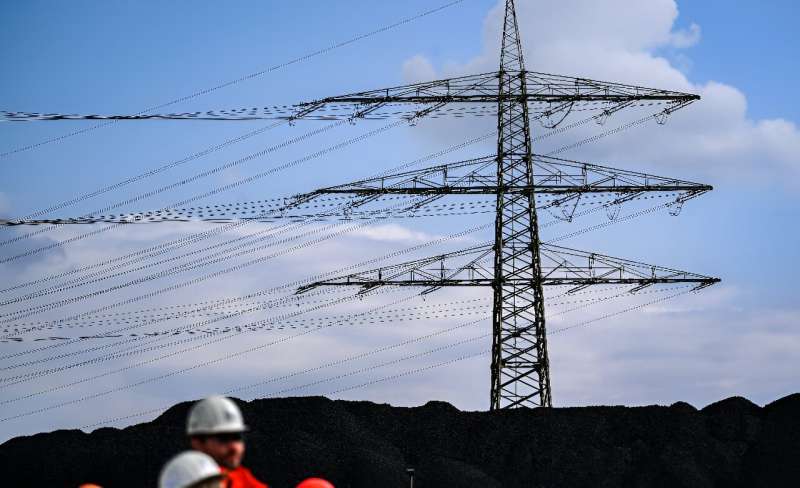Energy prices in Europe spiralled after Russia's invasion of Ukraine last year.
EU member states reached an agreement to reform its electricity market after months of sparring between France and Germany over state support for nuclear energy, the European Council said Tuesday.
The European Union's plans to make the market less vulnerable to volatility were a response to Russia's invasion of Ukraine, which sent energy prices spiraling for consumers and businesses last year.
The reform aims to cut households and businesses' bills with long-term contracts to smooth out the impact of gas price volatility.
It had been blocked by Franco-German disagreement after Paris pushed for measures to support nuclear energy, which alarmed Berlin.
Germany fears what it believes to be an unfair challenge from French electricity that is made more competitive thanks to massive public support.
France generates around 70 percent of its electricity from nuclear energy.
The debate focused on programs known as contracts for difference (CfDs) that would allow member states to get back money from energy producers when electricity prices rose higher than a certain limit.
France and Germany bitterly disagreed on the conditions required to use such schemes for investments in existing nuclear power plants.
"The council found a balanced agreement on this point... member states that support lifetime-extension investments (of existing power plants), the use of CfDs is not a mandatory solution, but remain still a possibility," the EU's energy commissioner Kadri Simson said.
The 27 member states' agreement does allow for state support for existing nuclear power plants subject to compliance with EU rules on state aid.
Act as one
The deal agreed by EU energy ministers in Luxembourg still needs to be negotiated with European Parliament lawmakers before it becomes law.
"The Electricity Market Design will make the market more resilient to any future price shocks coming from gas markets, but as well prepares for a decarbonised future," Simson said on social media.
"It also brings more certainty for the electricity sector to trigger investments in clean energy infrastructure," she added.
The plans include measures that would allow the EU to act as one during a crisis. In the event of a lasting surge in energy prices, the council, which represents member states, can declare a union-wide electricity price crisis.
The hope is that this would help better regulate the market during such a crisis.
"Thanks to this agreement, consumers across the EU will be able to benefit from much more stable prices of energy, less dependency on the price of fossil fuels and better protection from future crises," said Spain's environment minister Teresa Ribera Rodriguez, whose country holds the EU's rotating presidency.
© 2023 AFP
























